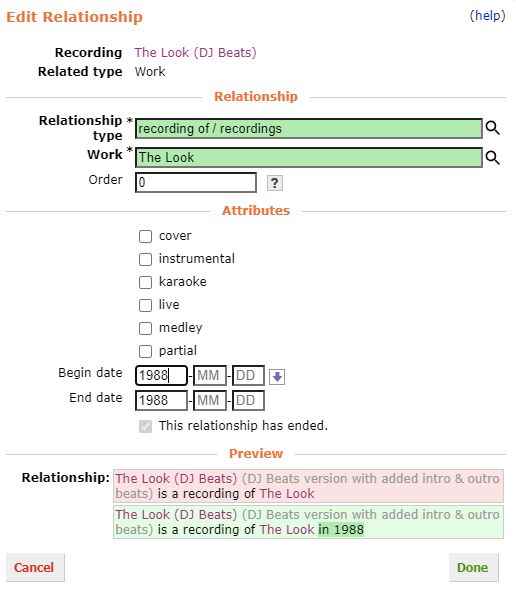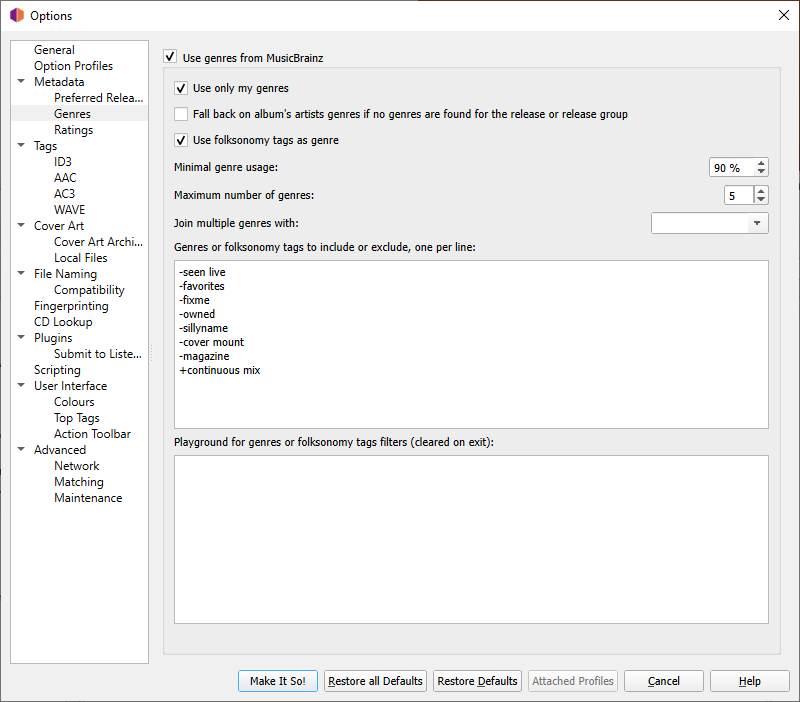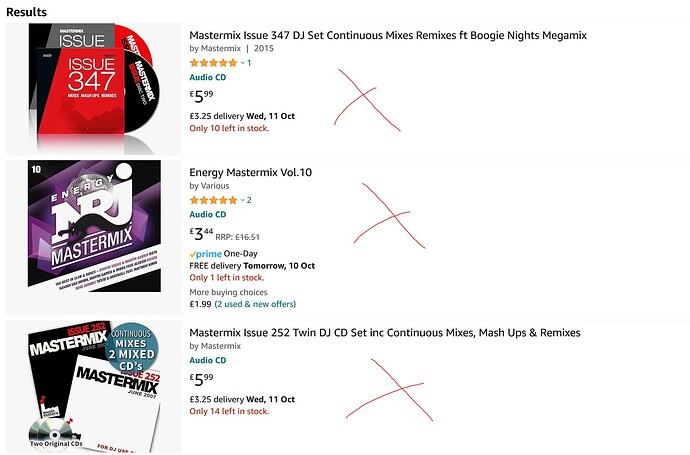Hi, please understand that I am not chained to my PC constantly, and have only logged in this morning to review your written comments from the notification I recieved from logging in.
Let’s break this down.
Firstly, you can easily find the pages for these releases are easily calculated - example DJ Beats 21 (Remastered) - Mastermix just change the number at the end and you’ll bring up the page for the ID in question. Apologies for not including those in my notes; and once we’ve worked out the released format issue with this series I’ll add the URL’s for each entry in the database with the correct relationship type.
Secondly, no I still do not believe your understanding of the term DJ mix is correct. If you look through the database you’ll see that DJ-Mix is nearly always used for continuous mixes of music; Search results - MusicBrainz - a series of unmixed tracks, regardless for their intended purpose, is just a compilation and by no merit a DJ mix.
Thirdly, yes that page is correct if you just scroll down a bit you’d find that DJ mix is listed on that page as per:
A sequence of several songs played one after the other, each one modified so that they blend together into a continuous flow of music. Common techniques for this include crossfading, beat-matching, beat juggling or scratching. A DJ mix requires that the tracks be modified in some manner. To describe a ‘DJ mix’, use the DJ mix relationships. Note: If the tracks have not been modified, then the action which should be described by relationships is compilation, not DJ mixing. Also see medley, for cases where the sequence of songs involved a brand new performance, rather than the use of prerecorded material.
The page you have linked states pretty much the same thing;
A DJ-mix is a sequence of several recordings played one after the other, each one modified so that they blend together into a continuous flow of music. A DJ mix release requires that the recordings be modified in some manner, and the DJ who does this modification is usually (although not always) credited in a fairly prominent way.
None of these state “because the release label says its for DJ’s it must be a DJ mix” - no it’s a description of what other may consider a continuous mix, and is to catalogue relases that are genuinely mixed together for seemless listening pleasure such as those produced by Ministry of Sound, not “adjusted” so they can work nicely in a mix.
Per your note here Edit #104490387 - MusicBrainz you’ve just re-affirmed that these tracks are simply intended for DJ use, not that they are a DJ mix. At no point does that say that the individual tracks are mixed up together to make a continuous stream of music.
Your last note is unfounded too because you’ve tried to provide evidence for something existing that doesn’t exist:
https://beta.musicbrainz.org/edit/104490387#note-104490387-5
That Amazon Search link returns a series of releases that don’t even correlate to what we are talking about:
For example the top three:
The first one is a series of megamixes (typical Music Factory fare) not the additional 8-bar intro/outro of the series we are discussing here
The second one doesn’t even appear to be from Music Factory, but instead Universal Music
The third one is much like the first and is again a series of megamixes.
Even as I flip through the pages, none of the releases given here actually prove anything because they’re not for the releases we are currently discussing.
As previously mentioned in this thread, Ian has confirmed that CD’s did exist but they stopped at some point but I need to find where / if Music Factory ever made this a public announcement then we can determine of these relases which are likely genuine CD’s or have been mistakenly input as CD’s yet only ever existed digitally.
We shall wait to hear from others what they think DJ mix means, and if necessary I will log a ticket to update the documentation to make it clearer; but for the moment I will be making no more changes in regards to the secondary format of these entities before we end up in a tennis match of edits.


